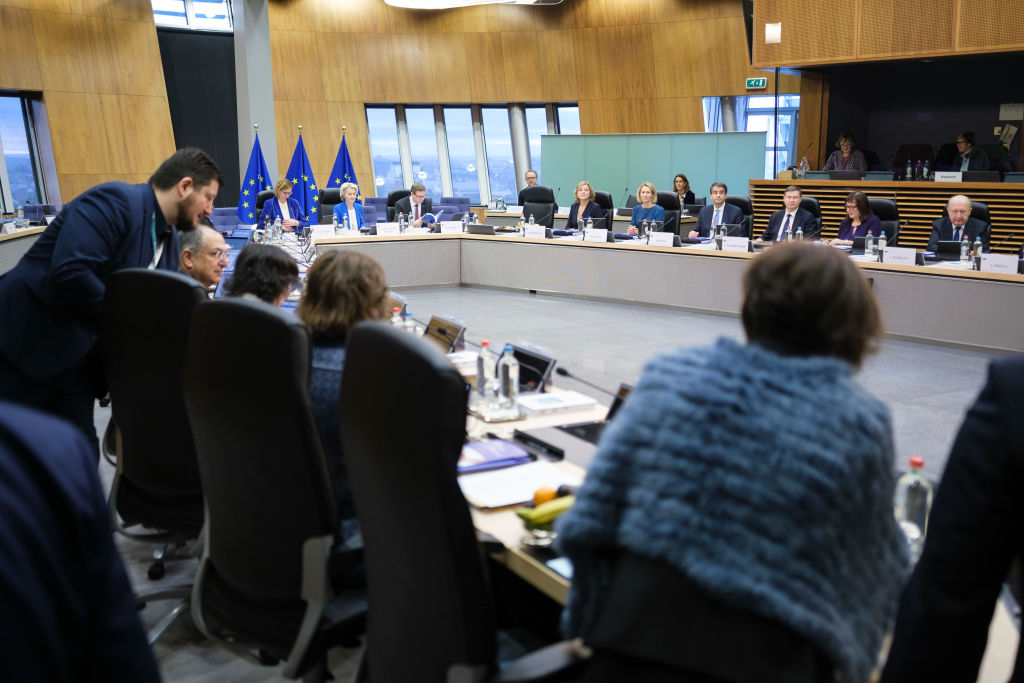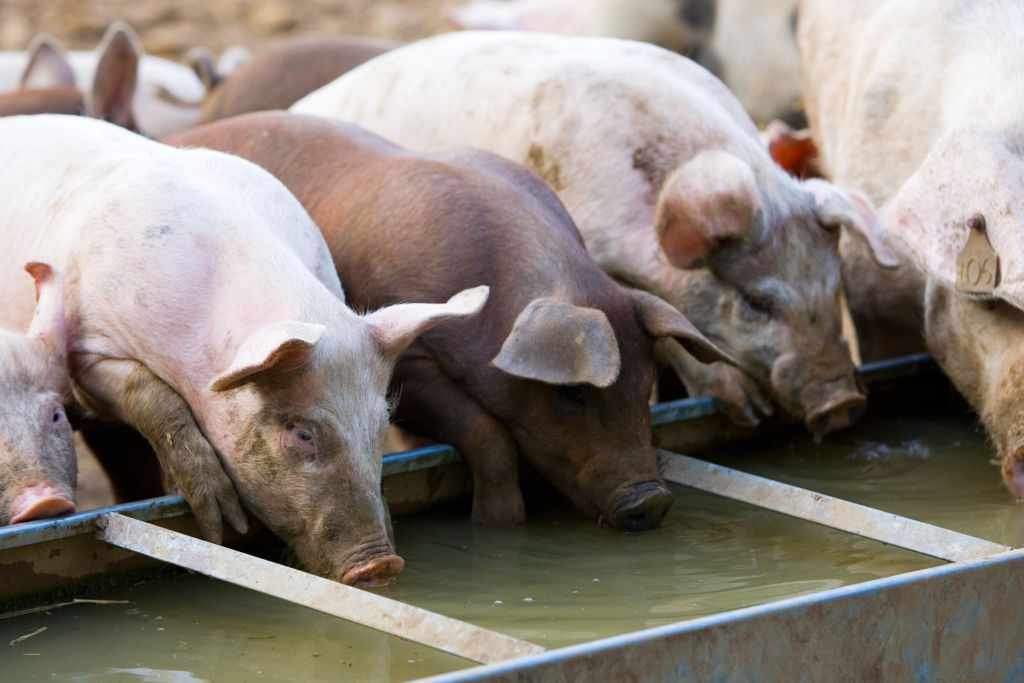The European Union’s schoolmarm in chief, Ursula von der Leyen, has called her unruly charges together this week in Copenhagen, where she will rap knuckles and extract commitments needed “… to enhance our readiness and have the tools to be able to react to threats when needed.” Exactly what tools the EU could employ to deter an aggressive Russia remains unclear, although they will certainly depend on money. Lots of money. Talk of a “drone wall” to protect all of eastern Europe from future airborne incursions is cheap, but the reality remains beyond the EU’s technical or financial capacity. As von der Leyen knows, cash is pretty tight in Europe. France is struggling to cut its staggering deficit, and even Germany recognises that its welfare state is not financially sustainable.
The EU as a whole is embroiled in a vicious backroom fight over its next seven-year budget, with the net takers resolved to retain their benefits, and the net payers determined to limit new spending. Commission plans to amalgamate farming subsidies and regional development aid under general national accounts are rightly seen by the primary recipients as a prelude to eventual cuts to these programmes, and they are fighting hard to preserve their traditional entitlements. Looming over this dispute is the impending need to begin repayment of the massive pandemic rescue loans incurred by Brussels, an obligation estimated to exceed 15 per cent of the bloc’s annual spending. At the same time, the EU is scratching around in the sofa cushions for the additional €9 billion Ukraine needs by the end of the year to continue basic government operations. Not exactly an ideal time to pass the hat for new and expensive military commitments needed to “react to threats when needed”.
But what other than cash does the EU bring to European security? It doesn’t command military forces, procure equipment, or possess a planning staff worth the name. NATO remains the indispensable security provider for Europe, with decades of experience in arranging national military budgets in the service of a common defence. Donald Trump managed a neat trick in arranging for EU states to buy American equipment for Ukraine. But additional EU monies funnelled through NATO will happen only over strenuous French objections. NATO cannot discriminate against American suppliers, and will use any EU money as it sees fit, which may well favour US defence contractor Raytheon over French defence corporation Thales. Were the EU able to issue debt and pour funds directly into defence programmes, it could claim an equal voice at NATO in how those monies were used.
In the absence of new Eurobonds, the only ready source of new funding lies in the €400 billion in debt Germany will assume for its military over the next five years. Unfortunately for the EU, Berlin now shares its credit rating with the same spirit of generosity as Smaug the Dragon guarding his gold. France is discovering that the halcyon days when submissive Germans would cheerfully bankroll French farmers are long past. Paris desperately wants Germany to finance their planned sixth generation fighter, with the added proviso that French aerospace company Dassault will perform 80 per cent of the work. Not surprisingly, Germany wants an equal share in designing and executing what will be the most lucrative defence programme in European history. New German defence spending will serve German and NATO priorities, not French industrial strategy.
Von der Leyen’s attempt to browbeat member states into spending more on defence this week ignores the fundamental weaknesses besetting the bloc, and in particular, Germany’s ongoing economic stagnation. Since its inception, the EU thrived as a financial dependency of German exporters. The enormous trade and financial surpluses racked up by German companies spun off the tax revenues that financed the EU’s signature programmes. As those lucrative export markets began to decline, so did Germany’s ability to support EU spending. While waning automobile exports may be the most visible indicator of Germany’s industrial plight, a deeper crisis is underway in the country’s engineering sector. Building the machines that are used to make finished industrial goods, extract raw materials and produce the components of public infrastructure has been a critical component of Germany’s post-war prosperity. Porsches and Beemers may represent German industrial prowess to consumers, but the German engineering sector is the progenitor of those technical marvels, supplying the parts, subassemblies and factory equipment that made these cars prized worldwide. It is the economic substrate of both German prosperity and EU finances.
Yet now this sector is in deep trouble, because of the export slump and the strictures imposed on hydrocarbon-based industries by the EU. The German engineering federation anticipates a 5 per cent drop in production for 2025. Since 2018, total machinery production has dropped 20 per cent. The industrial flagship Bosch GmbH has just announced it will cut 13,000 jobs to close a €2.5 billion deficit. Like many German industrial firms, Bosch remains wedded to the car industry and the internal combustion engine, with sales to the car industry constituting roughly 60 per cent of company revenues. Both US and Chinese demand for German goods are in decline, and show little sign of a revival. China is determined to restrict domestic demand for foreign products, and flood Europe with its own exports. Contrary to the rosy predictions of the EU’s eco-warrior elite, the net zero campaign has not unlocked new industrial opportunities for traditional companies. It has only punished them with mandates, fines and high energy costs. Green industry remains dependent on state support, which will only grow as the dire need for grid upgrades and gas-fired backup capacity becomes clear. Net zero overburdens both industry and strained state finances.
Europe’s ability to provide sustained funding for the common defence depends on restoring her economic fortunes. The Commission President must address the “root causes” of the problem, many of which are within the Commission’s remit. The EU must abandon its ideological hostility to Germany’s most important industry, and embrace the cause of cheap energy, meaning more gas, both imported and domestic. If Europe is to gain control of its energy and industrial costs, it must also reverse bans on extraction techniques common in Pennsylvania. That the Dutch closed Europe’s largest gas field in a fit of eco-neurosis is symbolic of Europe’s passion for industrial self-harm.
Europe has enjoyed prosperity for so long it has forgotten that this happy state depends on favourable cost calculations in its domestic industries. Time for the schoolmarm to return Europe to a traditional curriculum.





Renewed euro crisis? French debt at €3.3 trillion must be focusing minds in Frankfurt